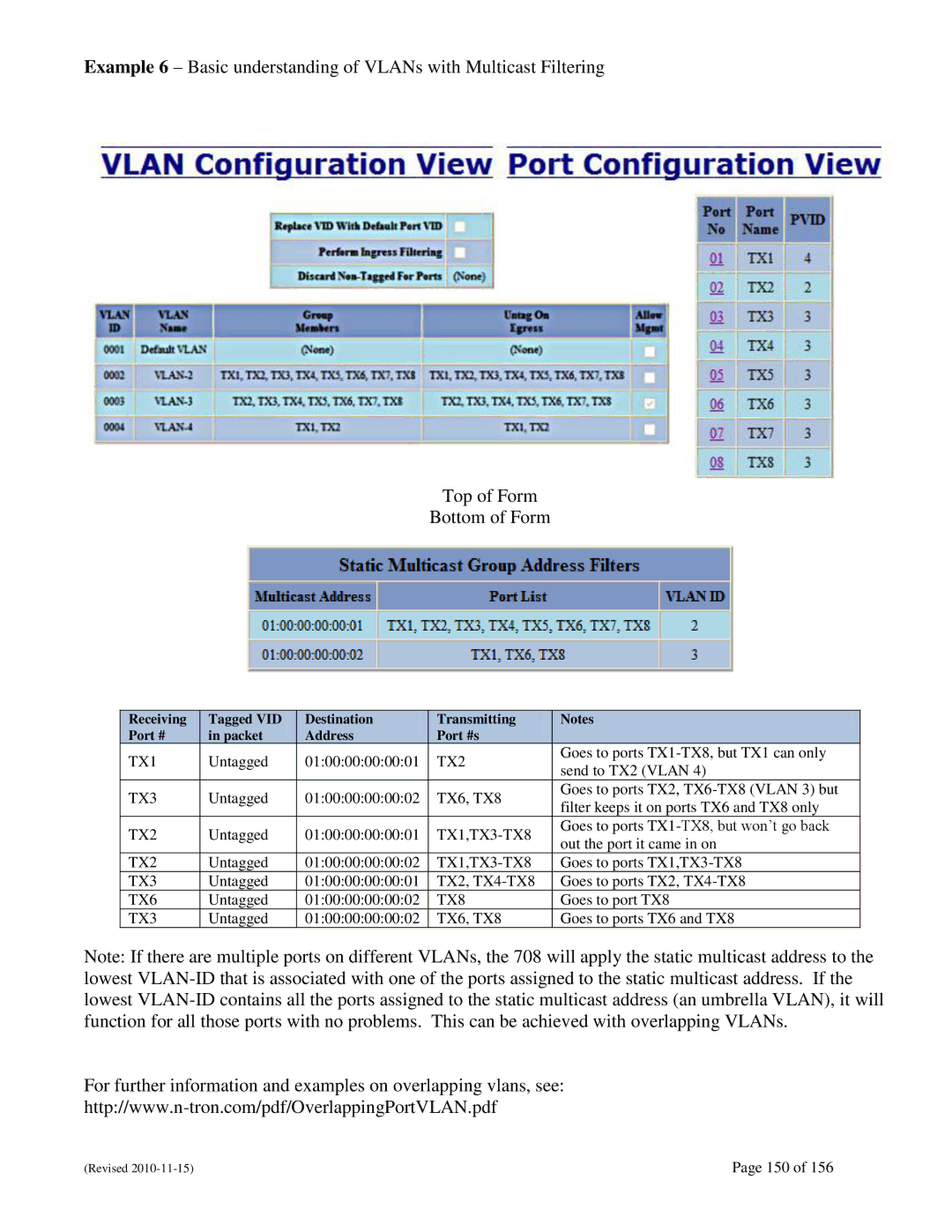
Example 6 – Basic understanding of VLANs with Multicast Filtering
Top of Form
Bottom of Form
Receiving |
|
| Tagged VID |
| Destination |
|
| Transmitting |
|
| Notes |
Port # |
|
| in packet |
| Address |
|
| Port #s |
|
|
|
TX1 |
|
| Untagged |
| 01:00:00:00:00:01 |
|
| TX2 |
|
| Goes to ports |
|
|
|
|
|
|
| send to TX2 (VLAN 4) | ||||
|
|
|
|
|
|
|
|
|
|
| |
TX3 |
|
| Untagged |
| 01:00:00:00:00:02 |
|
| TX6, TX8 |
|
| Goes to ports TX2, |
|
|
|
|
|
|
| filter keeps it on ports TX6 and TX8 only | ||||
|
|
|
|
|
|
|
|
|
|
| |
TX2 |
|
| Untagged |
| 01:00:00:00:00:01 |
|
|
|
| Goes to ports | |
|
|
|
|
|
|
| out the port it came in on | ||||
|
|
|
|
|
|
|
|
|
|
| |
TX2 |
|
| Untagged |
| 01:00:00:00:00:02 |
|
|
|
| Goes to ports | |
TX3 |
|
| Untagged |
| 01:00:00:00:00:01 |
|
| TX2, |
|
| Goes to ports TX2, |
TX6 |
|
| Untagged |
| 01:00:00:00:00:02 |
|
| TX8 |
|
| Goes to port TX8 |
TX3 |
|
| Untagged |
| 01:00:00:00:00:02 |
|
| TX6, TX8 |
|
| Goes to ports TX6 and TX8 |
Note: If there are multiple ports on different VLANs, the 708 will apply the static multicast address to the lowest
For further information and examples on overlapping vlans, see:
(Revised | Page 150 of 156 |
